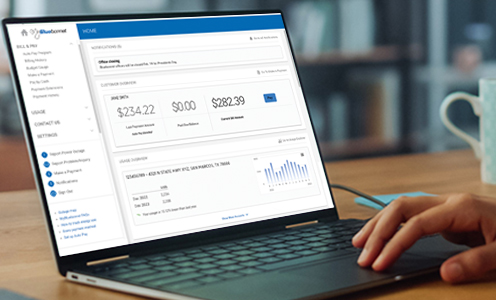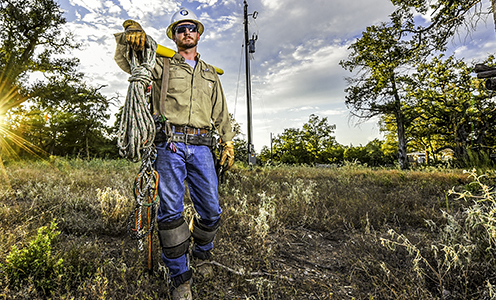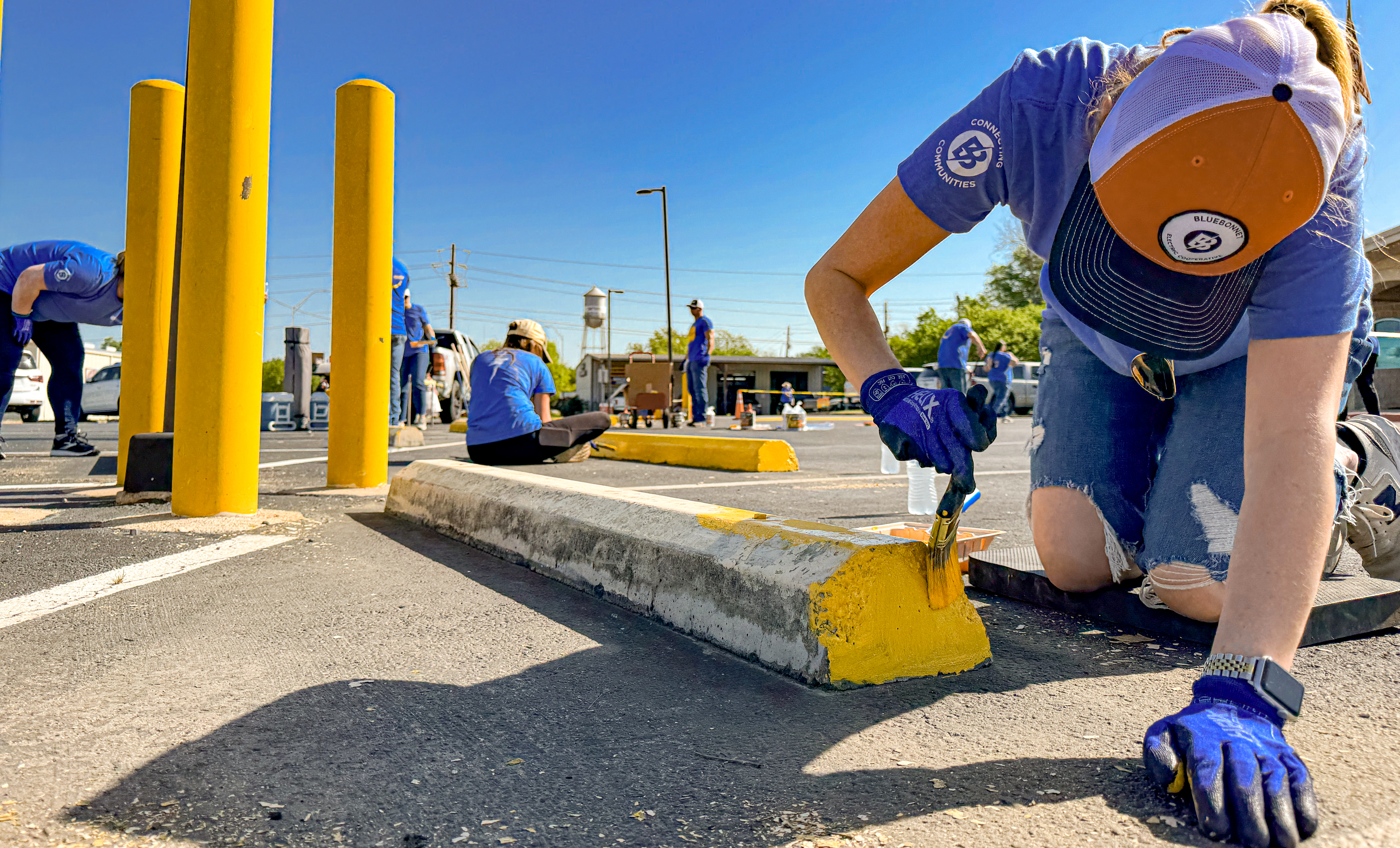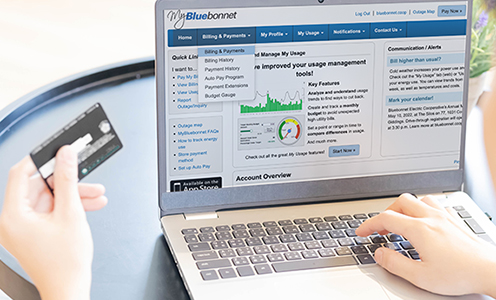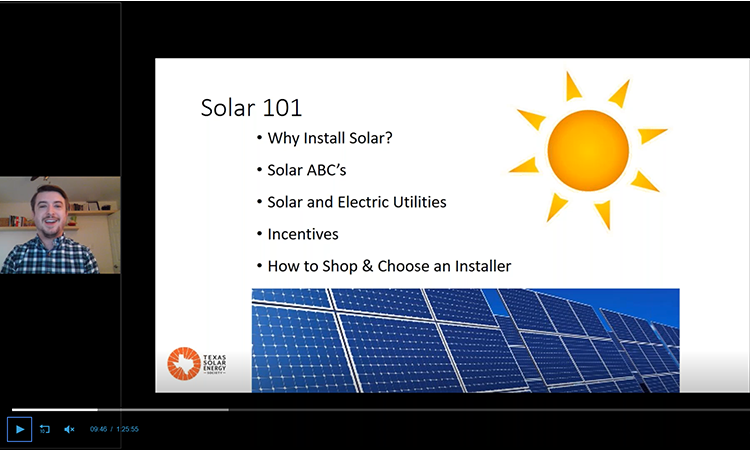
By Kristin Finan
As is the case with most events this year, Bluebonnet Electric Cooperative’s fifth annual Solar Tour went virtual for 2020.
The 1½-hour online event held Saturday, Oct. 24, showcased a presentation from Micah Jasuta of the Texas Solar Energy Society; testimonials from Bluebonnet members John Gardner and Jerry Douglas, who have installed solar panels on their homes; and a Q&A about the installation and upkeep of solar on a home.
“Solar is an opportunity to speak to the independent nature of us Texans,” Jasuta said. “Texans are very independent people. We value that self-reliance. Solar is a way to do that. You own your own power source.”
In general, with the help of federal tax credits, which could be phased out for residential installations as soon as 2022, those who install solar panels can expect to recoup the cost of their investment in 10-12 years, Jasuta said. He added that most panels have a 25-year lifespan.
“It’s a long-term investment. It’s not going to pay back tomorrow, but it’s something as sure as the sun rises that will pay back,” he said.
Bluebonnet member Gardner, who installed his first solar panels in 2004 and calls himself an “early adopter,” agreed that solar panels have been a good investment for his family.
“One of the interesting things people find out once they get it installed is they can monitor how much power they make on a daily basis or monthly basis. People become quite enthusiastic about that,” Gardner said. “People feel good about having solar once they have it installed.”
Several attendees wanted to know how to find reputable installers.
Ask friends and family who already have solar for recommendations, and search the business member page at TXSES.org, Jasuta recommended, and review sites such as the Better Business Bureau, Yelp and solarreviews.com. “Get at least three proposals,” he said. “Don’t succumb to high pressure sales. Ask questions. There aren’t that many industries left where you can negotiate and haggle. This is one of them.”
Find more solar FAQs below. Learn more about installing solar on your own home here.
Watch the video »
If a member decides to install solar, the member or their vendor will submit the interconnection documents, said Brittany Hardy, a Bluebonnet member service representative who handles many of Bluebonnet’s residential and small commercial members with solar panels. When the documents are approved, the vendor will complete the installation, and Bluebonnet will inspect it for safety before it’s turned on.
“The skills you need are not just being an electrician but also being a roofer,” Jasuta said. “There’s a leak risk. If you have holes in the roof, those leaks are covered in a contract if you use a licensed contractor. People think they can find a great deal for solar panels on the internet, but installers have access to buying in bulk through electric supply houses, and they typically get lower prices for solar equipment than cheap stuff off the internet. Yes, you pay more for labor, but you’re getting peace of mind, and you’re probably getting a better price.”
Typically, Jasuta said, the answer is no. “If you have a standard residential roof, you should be fine. Solar panels add about 3 pounds per square foot. … The only roofs I’ve see that could not support solar were barns. At 3 pounds per square foot, the weight is very distributed.”
Bluebonnet does not charge to install solar, including third-party installation, Hardy said. She added that because Bluebonnet is a member-owned cooperative, any financial assistance offered to one member for renewables would have to be offered to all members. Consequently, Bluebonnet does not offer rebates.
Some companies make misleading offers, including exploiting the idea that you can have solar for no money down with their financing, Jasuta said. “The reality is it doesn’t usually pencil out that evenly or that nicely. Do your due diligence. Look for those catches. Estimate how much money you’ll be getting. Make sure you really will be saving.”
